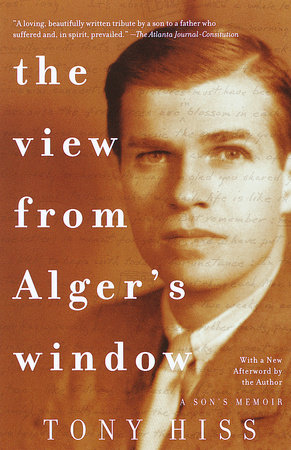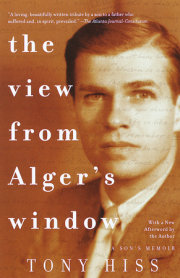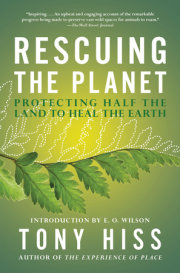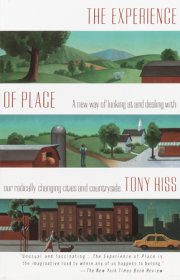From Chapter One
On a muted, misty late-November morning in 1997, I made an unremarkable, unmarked right turn off a suburban highway strip in north-central Pennsylvania--and abruptly, a year after his death, began a strange, rewarding period of vividly renewed contact with my father, Alger Hiss. I've seen again the full person he was, his strengths and gaps and the ways he changed, and I've revisited the rich inner world that sustained him and that only a very few people ever got to see. I've been learning how much of him there is in me, particularly in areas I've liked to think were my own invention. He's also been jogging my mind, it seems, posing questions, pointing out possibilities, suggesting strategies and next steps. From out of the anywhere, it arrived--this wild rose, this lovely, sweet-smelling, prickly gift--with nothing more complicated than a right turn.
The only explicit piece of fatherly advice I can remember my father giving me was:
Whatever you're going to do, get it up and running before you're seventy, because that's when the machinery inside starts to break down. Now I've collected a second piece of advice for my own son to think about someday (he's still only seven):
You won't--can't--know ahead of time when some not-to-be-ignored idea may overtake you.Since once-upon-a-time wishes, like wanting to spend more time with your father, don't expire just because you haven't thought about them for decades--the fairy tales that deal with the subject of wish-granting don't spell out all the rules, such as the fact that deliveries are erratic and unscheduled. So try not to let your calendar get too cluttered.
I don't think there's anything either unique or spooky (or ennobling or neurotic, for that matter) about what's been happening to me. My father himself even had a name for a kind of ongoing closeness between people in which death is sometimes only an irrelevance. He called it "the Great Span," a sort of bucket brigade or relay race across time, a way for adjacent generations to let ideas and goals move intact from one mind to another across a couple of hundred years or more. He thought its purpose was to keep unifying memories alive.
As Alger explained it, it had been his privilege as a young lawyer to hear a series of Great Span stories from Oliver Wendell Holmes, the man he most admired in life--Holmes was then eighty-eight, ramrod straight, with a booming voice and an elegant white handlebar mustache, and still a Supreme Court Justice. Alger was his clerk. Alger could repeat these stories, word for word, for the rest of his life. In the Civil War, the young Lieutenant Holmes, from the 20th Massachusetts Volunteers, was wounded three times, and at Ball's Bluff, when he was twenty, he was shot in the breast and left for dead when the Union forces retreated across the Potomac. His sergeant, who had heard him moaning, "How will I get to the other side?" said, "Well, Holmesy, you don't have to worry about that. You believe in Jesus Christ and all that, so you'll be all right." "I got so damn mad," Holmes said later, "that I decided to live!"
In the Holmes story Alger treasured above all others, the Justice told him that when he had been very young, his grandmother, a woman he revered, had shared her memories of the day at the beginning of the American Revolution when she was five and had stood in her father's front window on Beacon Hill in Boston and watched rank after rank of Redcoats marching through town. Ever after, my father said, the awed, scared experience of a little girl born more than a century and a quarter before him had been a bright presence in his own mind.
The Beacon Hill house later became headquarters for Lord Howe, the British commandant, and Holmes owned an old mirror from that house. Holmes left the mirror to Alger, and it now hangs in my living room. "Sometimes when I look into the glass, I think I can see Lord Howe's bewigged face staring back at me," Holmes told Alger. "Can you see it, sonny? Can you see it?"
Although I've thought of the Great Span as an illuminating idea, blazing a sort of Appalachian Trail across time, I wasn't looking to get caught up in such a journey. My father, who had become physically frail for the first time in his final year, died in November 1996, four days after his ninety-second birthday. Growing up, I would have thought of such an age as not quite old enough for him (I had always assumed that he would try to make it to ninety-three, like Holmes). My Pennsylvania trip, taken a year and five days after Alger's death, had been planned as the end of an ending, a day for making a final, peaceful farewell.
The month after Alger's death there was a long, affectionate memorial service in New York that more than eight hundred people came to--quite a huge crowd, but I would have been surprised only by a smaller turnout; I've never known anyone else with so many and such devoted friends.
Having said that first good-bye in New York, where I'd known Alger for most of my life, and then another one the following summer in Peacham, the tiny town in northern Vermont where we spent summers when I was a small boy, I wanted to go back for the last time ever to Lewisburg, Pennsylvania. To complete my own circle of remembrance from deep inside an enormous, high-walled, red brick building there, the institution in which he'd been confined during what had once upon a time felt like an endless time--the forty-four months between March 1951 and November 1954.
Copyright © 2000 by Tony Hiss. All rights reserved. No part of this excerpt may be reproduced or reprinted without permission in writing from the publisher.







